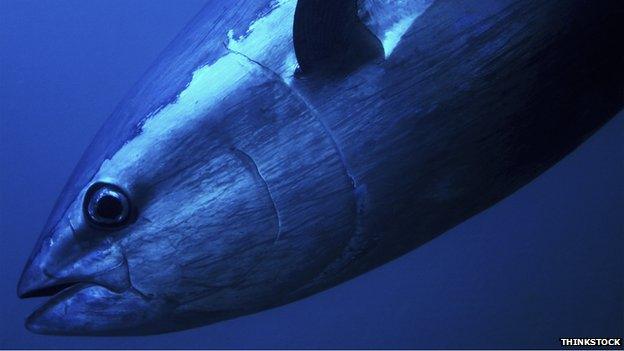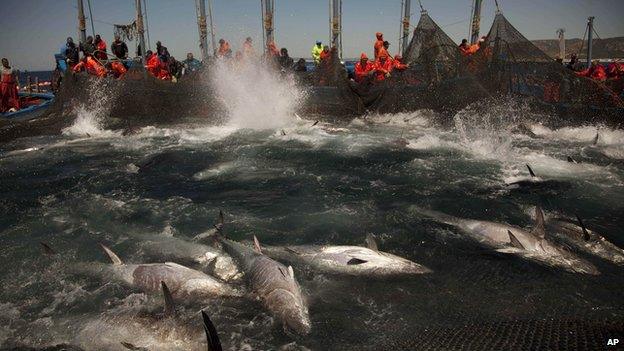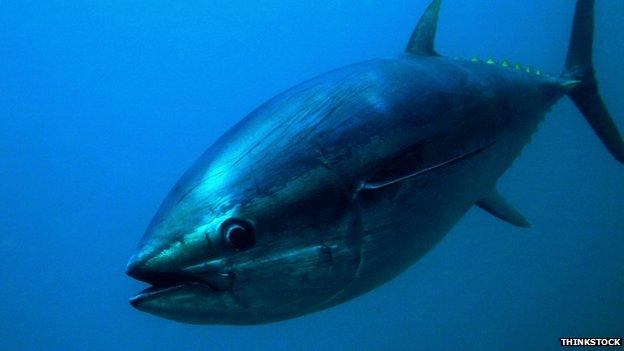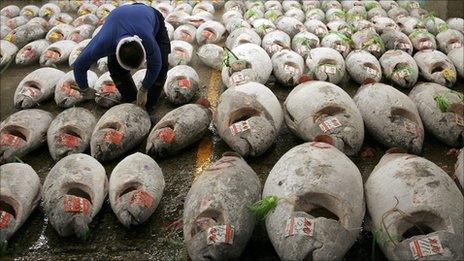Tagged Atlantic bluefin tuna tracked in Scottish waters
- Published

There are three species of bluefin tuna
Satellite tagged Atlantic bluefin tuna are being tracked in an effort to better understand their appearance in Scottish waters.
Angus Campbell, a boat operator from Harris, is working with Marine Scotland on the project.
Mr Campbell made the first recorded rod-line catch of a bluefin in Scotland while fishing off the Western Isles.
Warming sea temperatures and more herring and mackerel are thought to be drawing the tuna to Scotland.
Three tuna caught off St Kilda have been tagged. So far, the fish have been tracked to the Azores and the Bay of Biscay.
The study could lead to the start of recreational catch-and-release fishing in Scotland.
Atlantic are the largest and most endangered of three bluefin tuna species. The others are Pacific and Southern.

The EC has rules on the harvesting of bluefin tuna
Most catches of the Atlantic bluefin tuna are taken from the Mediterranean Sea, which is the most important bluefin tuna fishery in the world, according to WWF, external.
The European Commission has strict rules on the harvesting of the fish.
Mr Campbell caught a 515lb bluefin tuna in 2013.
Highlands and Islands Enterprise (HIE), Comhairle nan Eilean Siar and European Fisheries Fund have provided funding for the tagging scheme.
The project also involves the International Commission for the Conservation of Atlantic Tuna.
Lews Castle College UHI in Stornoway on Lewis will monitor water temperature in the seas around the Western Isles as part of the study.

Recreational catch-and-release fishing of tuna could be established in Scotland
Anne MacAulay from HIE, said: "The tuna study aims to support ocean science research, enabling us to gain a wider understanding of the marine life in the Outer Hebrides and the opportunities it presents for economic development."
Francis Neat, a researcher from Marine Scotland, said: "Marine Scotland needed to learn more about bluefin tuna in Scottish waters - how many there might be, how long they reside here, where they come from, and where they spawn.
"By working with Angus we were able to satellite tag three of these giant fish last year.
"The information we received suggests that the tuna swam thousands of miles and dived to depths in excess of 1,000m."
He added: "This study is aligned with the tagging programme of the International Commission for the Conservation of Atlantic Tuna and is an important first step toward understanding bluefin tuna behaviour in Scottish waters, and assessing in the longer term if a recreational catch-and-release sport fishery could be sustainable."
- Published7 November 2011
.jpg)
- Published18 October 2011
